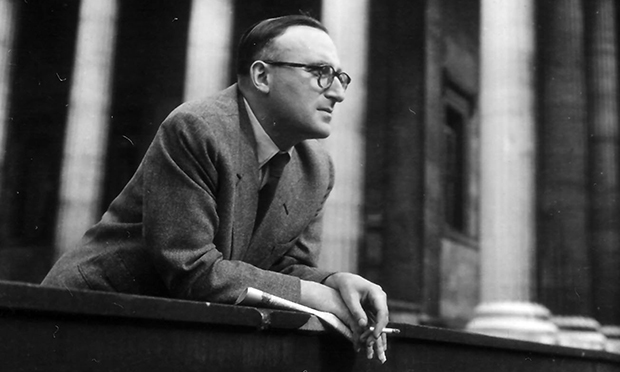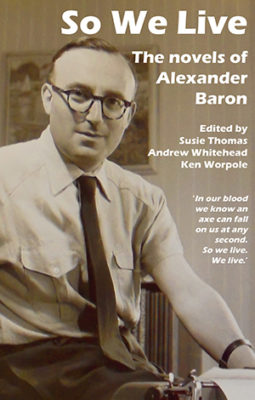So We Live: The Novels of Alexander Baron, Five Leaves: ‘A resurrection from years of neglect’

Photograph: Nick Baron
A century ago, Britain was embarking on an era that would shape politics for decades to come; by the 1930s, the agonistic clash between leftwing internationalist progressives and xenophobic fascists was playing itself out in concentrated form in the eastern reaches of London.
It was in this social and political cauldron that the young Alexander Baron – then Alec Bernstein – was learning about politics on the street.
A stint in the communist party, followed hard on by WWII fighting in Sicily and Normandy, left him asking for a typewriter on demob.
Over the next 30 years, Baron wrote 15 novels that reworked the experiences of communism, war and Jewishness.

Best known for From the City, From the Plough (1948) and The Lowlife (1963), which document from different angles the mid-century working-class experience, Baron was an important figure in post-war British fiction.
So We Live aims to resurrect the novelist from the years of neglect that followed his early success.
Inspired by the centenary of Baron’s birth in 1917, and timed to coincide with the posthumous publication of his final work The War Baby, this collection of essay assesses the writer from a variety of angles.
With a strong focus on the local context, from Stoke Newington to the Dalston borders, where Baron spent his formative years, the contributors find both parallels and contrasts with contemporary experience.
“A city should be accumulated memory” is one of Barons’ classic lines.
Hackney’s evolving ethnic mix, class gradations and political extremes will be familiar to the modern reader.
As an atheist Jew, a former communist and an ex-soldier, the writer held much of his subject matter at a certain distance yet retained intense psychological engagement with it.
Humanism is an enduring theme, from his portrayal of women in war-time Italy to loafers and gangsters in London’s East End, Baron’s work embodied his view that “the salvation we earn is not in the form of an after-life but in the future of all humanity”, and the search in his novels for future direction is as salient today as it was half a century ago when they were being written.
So We Live: The Novels of Alexander Baron, edited by Susie Thomas, Andrew Whitehead and Ken Worpole, is published by Five Leaves, 2019. ISBN: 978-1-910170-61-8; RRP: £12.99.
